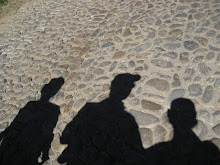My group is interested in discussing the concept of totalitarianism, which is described as "a political system whereby a state regulates every aspect of public and private life." I would definitely say that Nazi Germany, under the rule of Hitler, was a totalitarian state since the government had total control over the economy, the mass media, people's liberties of speech/press/religion, and exercised its power through propaganda and state terrorism (Grace mentioned how Hitler "took the rise of the Nazi party to a new level). Wikipedia talks about how totalitarianism didn't emerge until the 1920's; however, I think that aspects of this total dictatorship were present throughout Europe at a much earlier stage. I believe that both Zak and Grace will be looking at different dictators such as Napoleon and Peter the Great to see if there are distinct differences or similarities between these three (including Hitler) great tyrants and also to look at how this concept of totalitarianism has changed over time. According to Wikipedia authoritarian governments and totalitarian governments are not seen as the same thing because the former doesn't deal with the structure of society and merely the fact that a political organization in which the single power holder monopolizes political power. Did Peter the Great change the structure of society? How about Napoleon? On that note- did Hitler flat out change the structure of society since his government (the Nazi Party) is considered a totalitarian government? I believe he did change the structure of society by helping the working class and destroying an entire class or race of people. Of course this same website states that the Nazi's didn't completely destroy the social structure since Germany could quickly return to normalcy after their defeat in WWII. I'd like to look more into this concept of just how easy it was for Germany to return to normalcy and just what kind of long lasting damage did this totalitarian regime do to its country.
Subscribe to:
Post Comments (Atom)

No comments:
Post a Comment